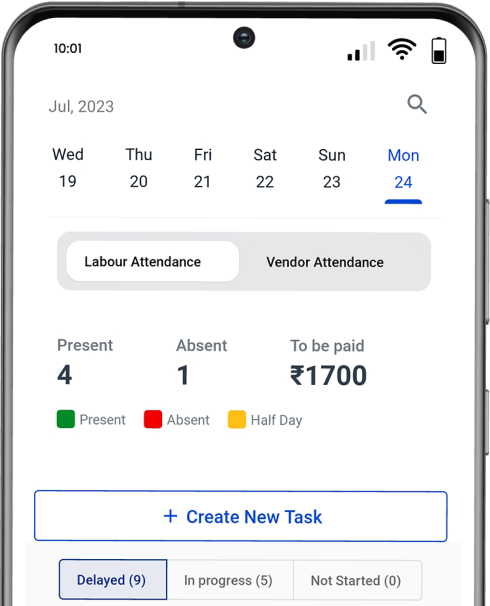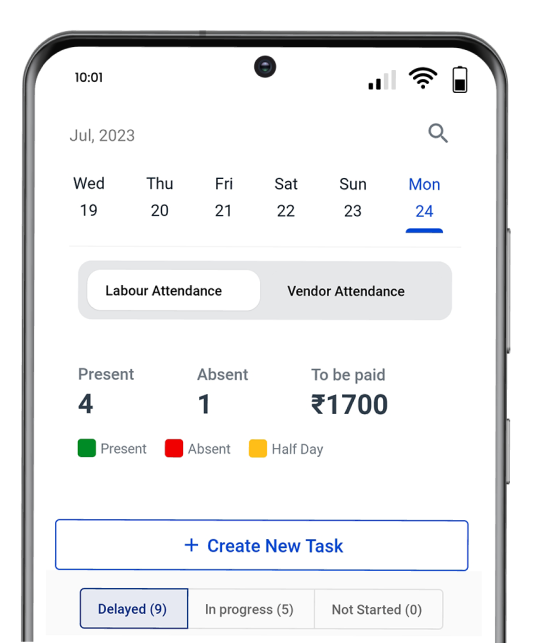The Ultimate Guide to Construction Vendor Management
-
Sapna
- June 28, 2024

Effective construction vendor management is essential to the success of any project in the construction industry. Whether you are a residential, commercial, or infrastructure general contractor, ensuring your vendors are reliable, efficient, and aligned with your project’s goals can make the difference between a smooth operation and one plagued with delays and overruns.
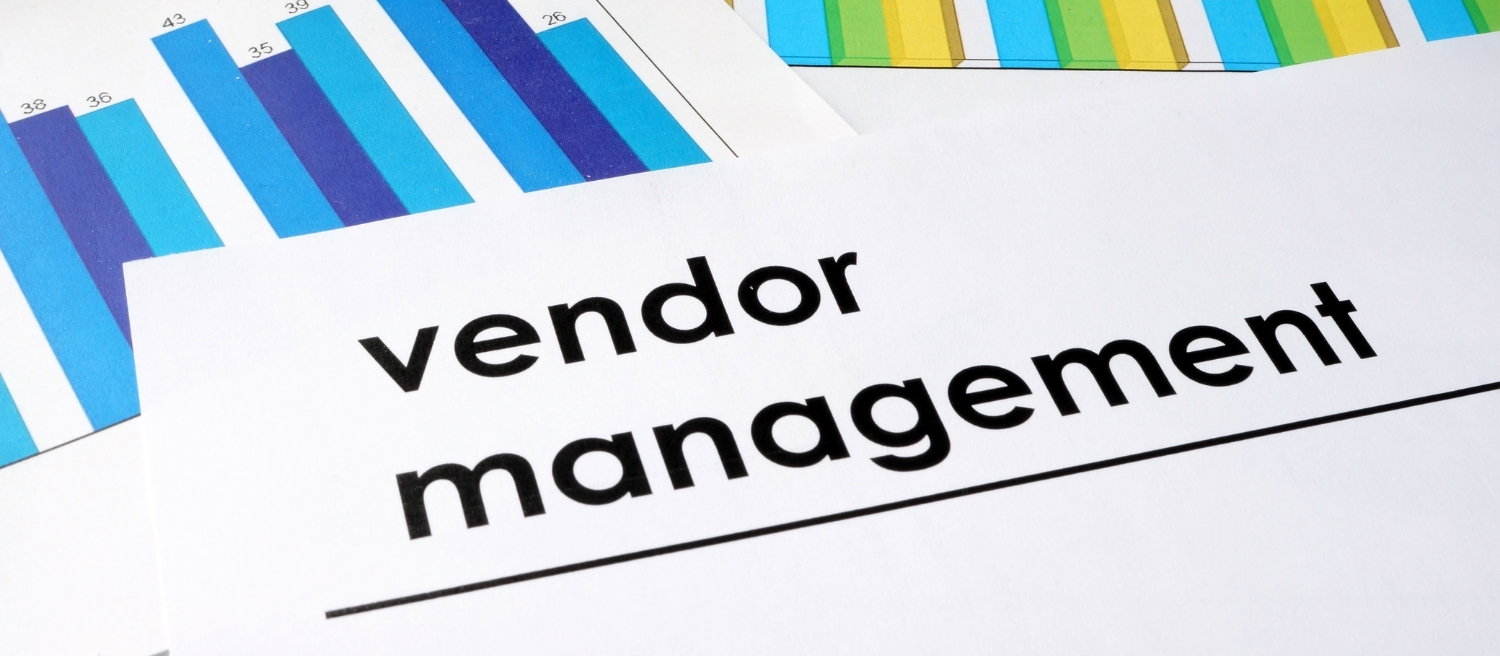
In this ultimate guide, we’ll delve into the essentials of construction vendor management, from foundational principles to advanced strategies, helping you build and maintain effective vendor relationships that drive your projects to success.
Table of Contents
What is Vendor Management in Construction?
Construction vendor management refers to the systematic process of selecting, acquiring, and overseeing vendors who supply goods and services necessary for construction projects. This includes everything from raw materials and equipment to specialised labor and subcontractors. The goal is to build a network of dependable vendors who contribute to the timely and cost-effective completion of construction projects.
Effective vendor management is important for ensuring that all the construction projects are completed on time and within budget.
What Are the Responsibilities Associated with Managing Vendors?
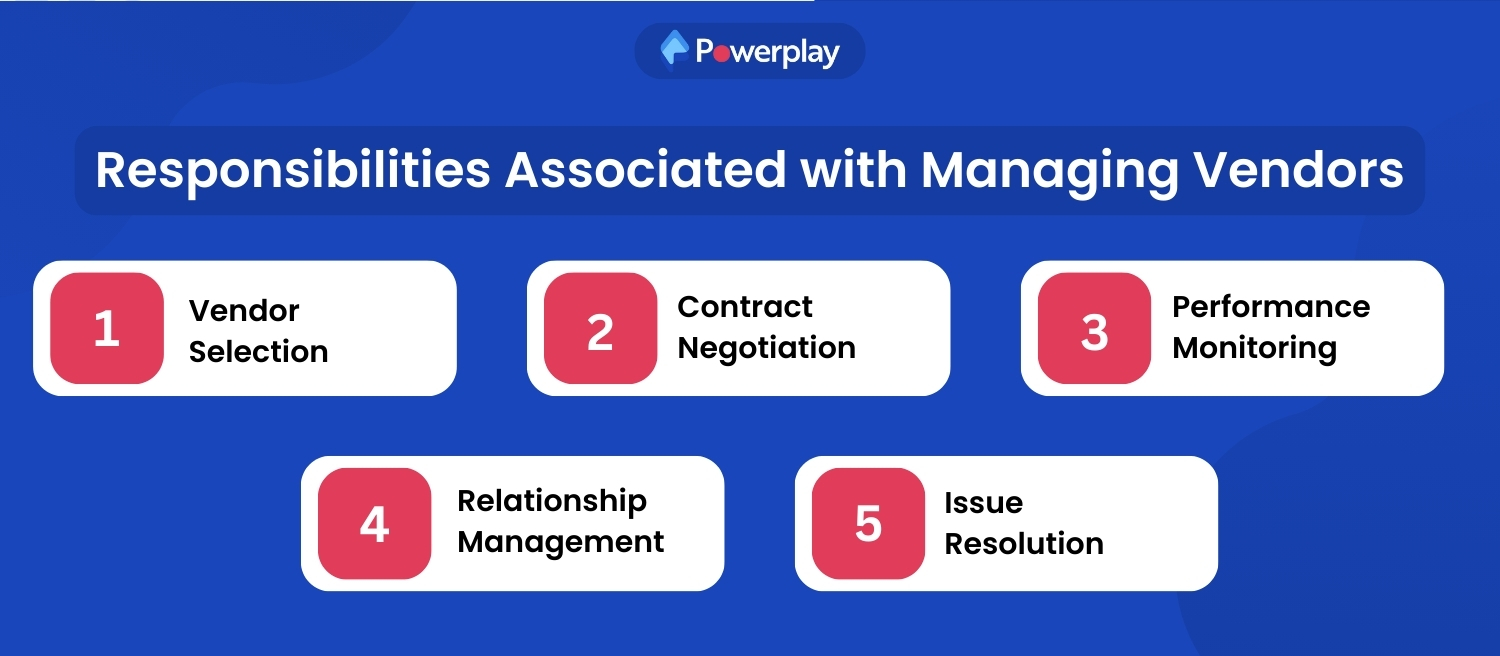
Managing vendors in construction involves a range of responsibilities, including:
Vendor Selection: Identifying and selecting vendors that meet your project requirements and standards. A well-defined vendor selection process is crucial for identifying vendors that meet your project requirements and standards.
Contract Negotiation: Establishing terms and conditions that protect your interests while fostering a collaborative relationship.
Performance Monitoring: Regularly assessing vendor performance to ensure they meet quality, time, and budget expectations.
Relationship Management: Building and maintaining strong vendor relationships to facilitate smooth project execution.
Issue Resolution: Addressing problems or disputes during the project promptly and effectively.
How Do You Effectively Manage Vendors?
Effective vendor management in construction requires a strategic approach. Here are some steps to manage your vendors effectively:
- Clear Communication: Establish open and clear lines of communication to avoid confusion and make sure that all team members are on the same page.
- Regular Reviews: Conduct regular performance reviews to assess vendor efficiency and address any issues.
- Set Key Performance Indicators (KPIs): Set Key Performance Indicators (KPIs) to measure vendor progress and effectiveness.
- Flexibility and Adaptability: Be prepared to adjust strategies and plans as project requirements change.
- Strong Contracts: Draft comprehensive contracts that outline expectations, deliverables, timelines, and penalties for non-compliance.
- Technology Utilisation: Implement technology solutions such as vendor management systems (VMS) to streamline processes and improve oversight.
Features of Vendor Management
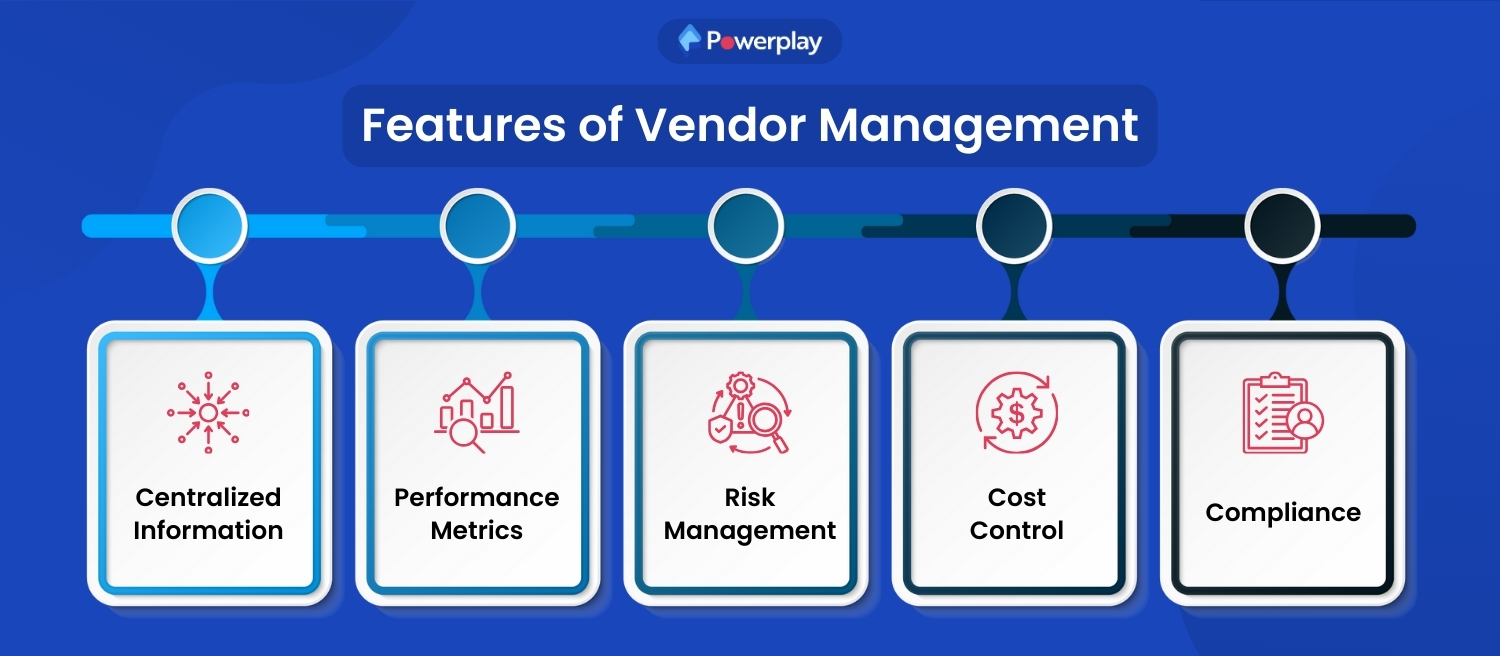
Powerplay, a leading construction project management software, offers a detailed suite of features to streamline and enhance vendor management. Here is how Powerplay’s features can revolutionise your vendor management, ensuring smoother operations, better performance, and successful project completions.
Centralised Information: Keeping all vendor-related information in a central location for easy access and management.
Performance Metrics: Using metrics and KPIs to evaluate vendor performance consistently.
Risk Management: Identifying and reducing risks associated with vendor relationships.
Cost Control:
- Ensuring vendor services and supplies are cost-effective and within budget.
- Improve project cost visibility by capturing real-time data between vendors and clients.
Compliance: Ensuring that all vendors comply with industry standards and regulations.
Vendor Management Systems
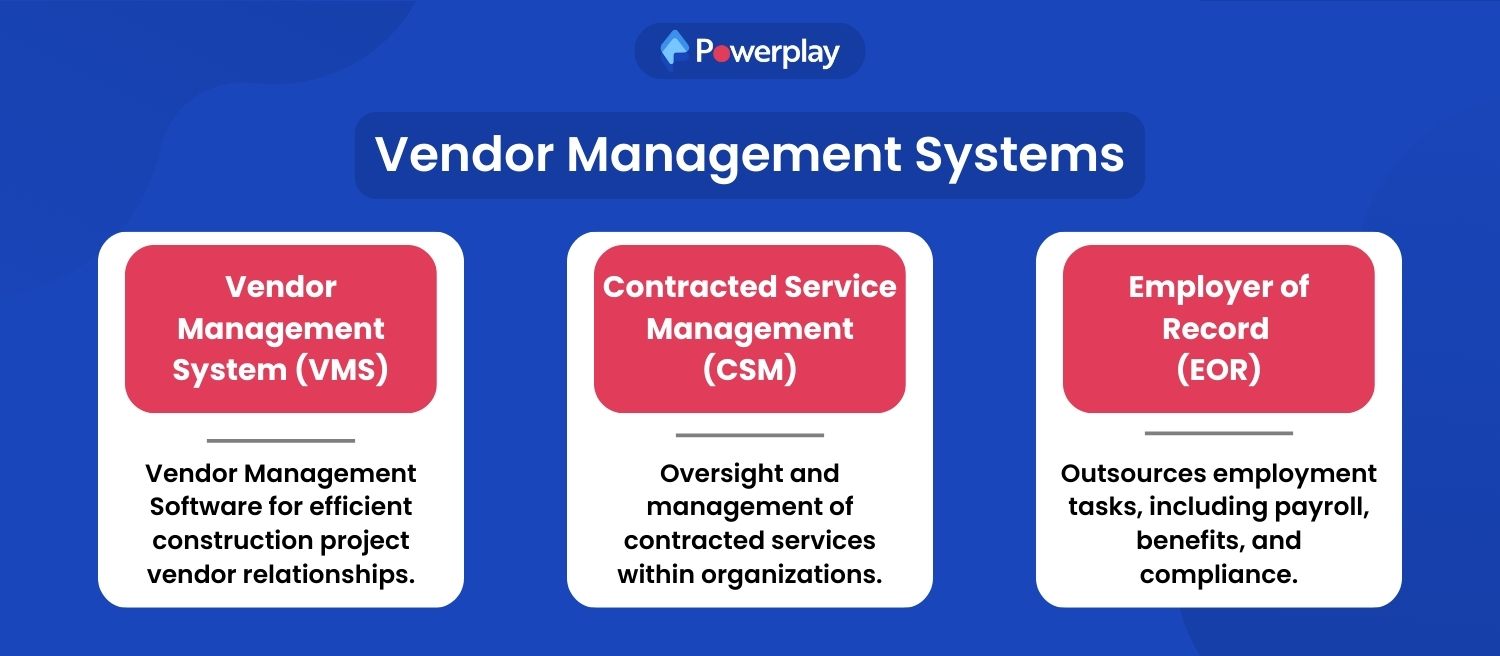
Essentially, there are three major types of Vendor Management Systems:
Vendor Management System (VMS):
It is a software platform designed to streamline the management of vendor relationships in construction projects. VMS systems streamline processes such as vendor selection, onboarding, performance monitoring, and payment processing. They enhance efficiency by automating tasks and providing analytics for better decision-making.
Contracted Service Management (CSM)
It involves the oversight and management of contracted services within an organisation. It focuses on ensuring that service contracts meet quality standards, timelines, and budgetary constraints. CSM includes activities such as contract negotiation, performance monitoring, compliance management, and relationship management with service providers.
Employer of Record (EOR)
It is a service provider that assumes responsibility for employment-related tasks for a business, including payroll, taxes, benefits administration, and compliance with employment laws. This arrangement allows companies to outsource employer responsibilities while maintaining operational control over their workforce.
Benefits of Vendor Management Systems:
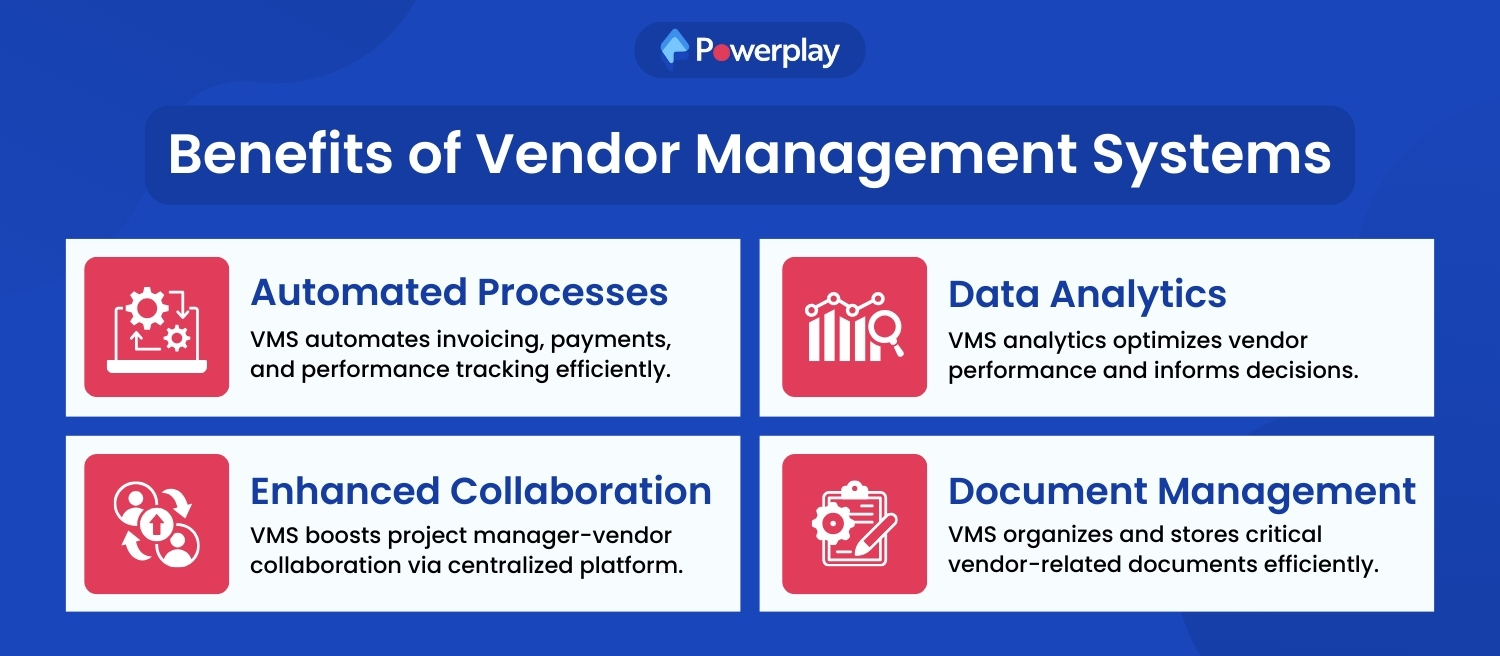
Automated Processes
VMS automates essential tasks such as invoicing, payments, and performance tracking. By automating these processes, VMS reduces administrative burden, minimises errors, and ensures efficiency in vendor management.
Data Analytics
VMS provides powerful data analytics capabilities that offer insights into vendor performance and trends. By analysing data, project managers can make informed decisions to optimise vendor relationships and project outcomes.
Enhanced Collaboration
The VMS enhances collaboration between project managers and vendors through a centralised platform that facilitates communication and document sharing, thereby boosting transparency and coordination across the project lifecycle.
Documentation Management
VMS helps in organising and storing all necessary documents and contracts related to vendor relationships. This ensures that all critical information is readily accessible, reducing the risk of miscommunication or disputes.
Vendor Management Process
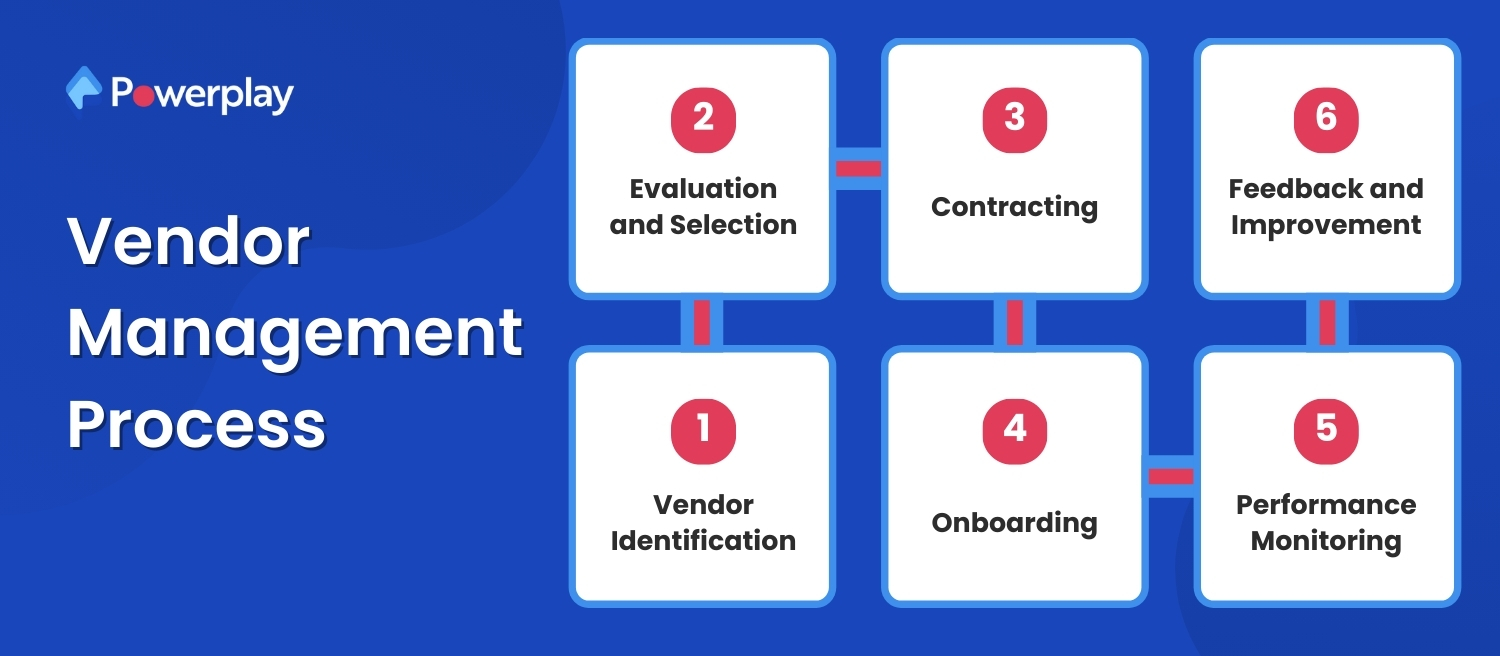
The vendor management process in construction involves several systematic steps to effectively manage vendors:
Vendor Identification
The process begins with identifying potential vendors through thorough market research and industry networks. This step is crucial for sourcing vendors who align with project requirements and standards.
Evaluation and Selection
Vendors are evaluated based on criteria such as experience, reliability, and cost-effectiveness. Financial stability and previous performance history are also considered to ensure vendors can meet project demands.
Contracting
Negotiating and finalising contracts is a critical step to define the scope of work, expectations, deliverables, timelines, and terms of collaboration. Clear contracts mitigate risks and establish a foundation for a successful vendor relationship.
Onboarding
Integrating vendors into the project workflow involves outlining their roles, responsibilities, and project-specific requirements. Effective onboarding ensures vendors understand expectations and can seamlessly contribute to project goals.
Performance Monitoring
Regular monitoring of vendor performance against predefined metrics is essential to track progress and adherence to quality, time, and budgetary standards. This step allows for timely intervention and adjustments if performance deviates from expectations.
Feedback and Improvement
Providing constructive feedback and collaborating with vendors to improve their performance is an ongoing process in vendor management. Continuous improvement initiatives foster stronger vendor relationships and enhance overall project outcomes.
Role of Vendor Managers in Vendor Management
Vendor managers play a crucial role in the construction vendor management process. Their responsibilities include:
Liaison: Acting as the main point of contact between the construction company and vendors.
Performance Monitoring: Continuously monitoring and evaluating vendor performance.
Conflict Resolution: Addressing and resolving any disputes or issues that arise.
Strategic Planning: Developing strategies to optimise vendor relationships and project outcomes. Vendor managers should work closely with management and budgeting offices to control supplies and negotiate prices.
Continuous Improvement: Seeking ways to improve the vendor management process.
Tips to Proactively Manage Your Vendors
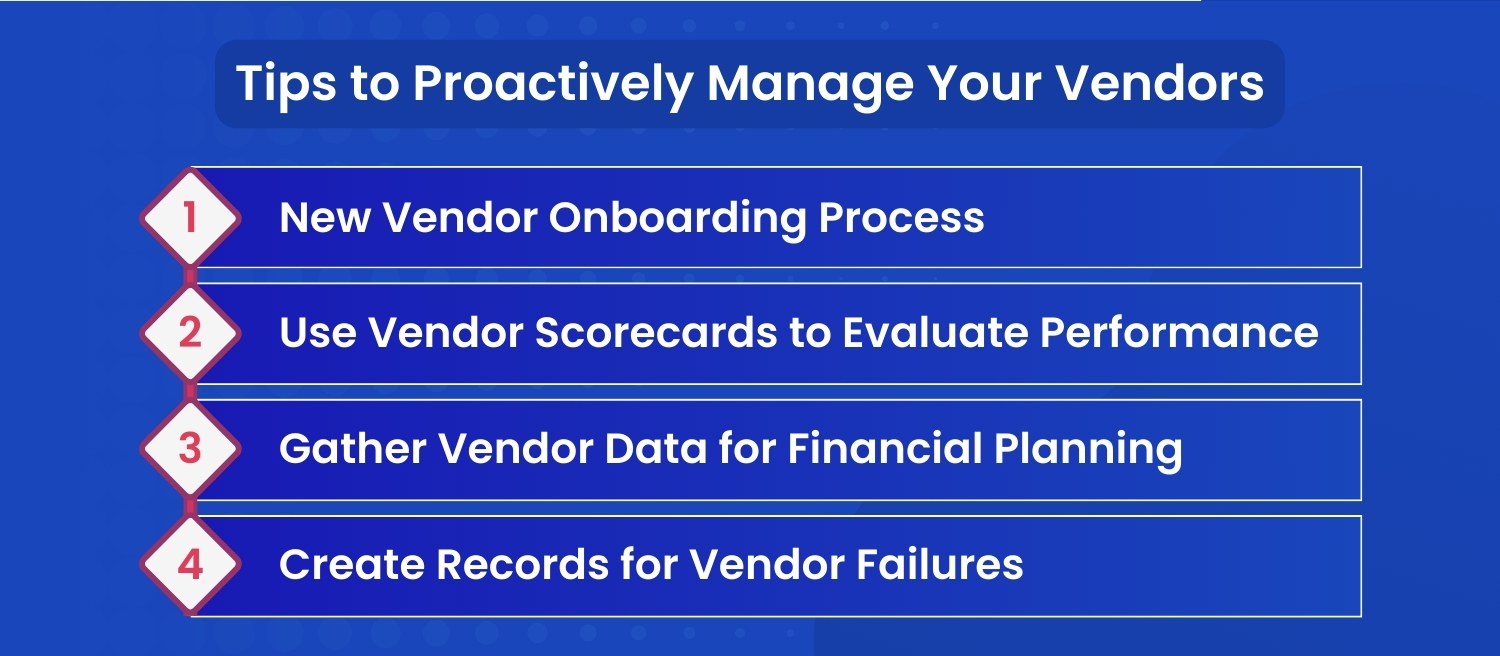
New Vendor Onboarding Process
A structured onboarding process is essential for smoothly integrating new vendors into your project. This includes providing them with all necessary information, resources, and clear expectations.
Utilise Contracted Service Management (CSM) systems to streamline the onboarding process and capture real-time data.
Use Vendor Scorecards to Evaluate Performance
Vendor scorecards are tools used to assess and compare vendor performance based on various metrics, such as quality, timeliness, and cost. They help make data-driven decisions about vendor management.
Gather Vendor Data for Financial Planning
Collecting and analysing vendor data is crucial for effective financial planning. This data helps in budgeting, forecasting, and identifying cost-saving opportunities.
Create Records for Vendor Failures
Maintaining detailed records of vendor failures or issues is important for accountability and future reference. These records help make informed decisions and avoid similar problems in the future.
Conclusion
Construction vendor management is critical to ensuring the success of construction projects. By understanding the responsibilities, processes, and best practices involved, you can build and maintain strong vendor relationships that contribute to your projects’ timely and cost-effective completion. Implementing effective strategies and leveraging technology can greatly enhance your vendor management efforts, leading to better project outcomes and a more efficient construction process.







